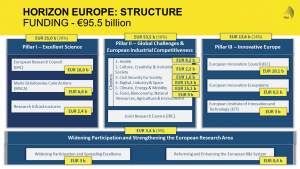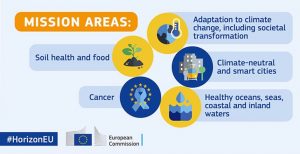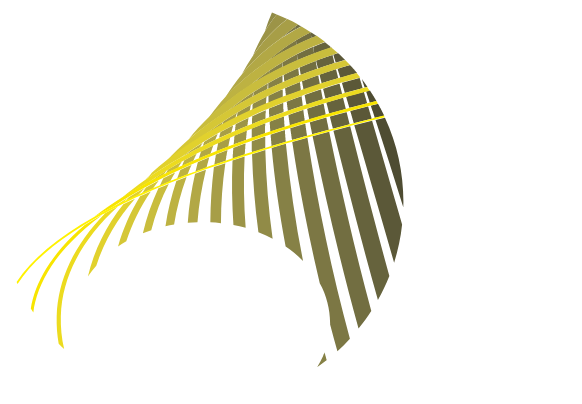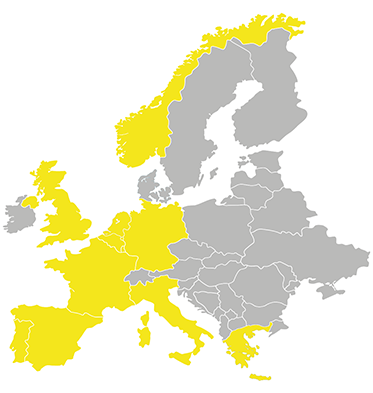When does Horizon Europe start?
On 2 February, the European Commission (EC) launched the new Horizon Europe programme. The programme has a budget of over 95 billion euros for research and innovation in the European Union and Associated Countries for the period 2021-2027. The launch was particularly symbolic, as the European Parliament is expected to vote on 26 April 2020 after nearly 3 years of negotiations on the content and budget.
The Parliament and Council reached an agreement in December 2020 on the €95.5 billion budget. The second part of the legislation (to be formally approved in the 26 April plenary), lays down the structure and the objectives of the programme, the internal distribution of the budget, the forms of EU funding and the rules for providing such funding.
The EC is expected to publish the main Work Programmes in May 2021. It will contain the planned calls for proposals for the first 2 years of Horizon Europe. Previously, the separate annual Work Programme for the European Research Council (ERC) and European Innovation Council (EIC) were already published.
What is the structure of Horizon Europe?
The programme for the period 2021-2027 will have a 3-pillar structure:
- Pillar 1 ‘Excellent Science’ with €25.011 billion budget.
- Pillar 2 ‘Global Challenges and European Industrial Competitiveness’ with budget of €53.516 billion.
- Pillar 3 ‘Innovative Europe’ with budget: €13.598 billion.
- ‘Widening participation and Strengthening the European Research Area’ (budget: €3.393 billion).

Five missions
In addition to the 3 pillars, there are also 5 specifically identified missions. These research and innovation missions aim to provide solutions to some of the major challenges the world is facing.
Each mission is a mandate to solve a pressing challenge in society within a given time frame and budget. The 5 missions with some of their targets for 2030 are:
-
Adaptation to climate change, including societal transformation: preparing Europe to tackle climate disruption
-
Cancer: saving more than three million lives, living longer and better, understanding cancer in depth
-
Healthy oceans, seas, coastal and inland waters: cleaning up sea and freshwater, restoring degraded ecosystems and habitats
-
Climate neutral and smart cities: supporting 100 European cities and demonstrating a systematic transformation towards climate neutrality by 2030
-
Soil health and food: at least 75% of all soils in the EU are healthy for food, people, nature and climate.

What do we know about the content?
The Horizon Europe Programme is not yet final. At the moment there are so-called drafts circulating that still need to be finalised. Most programmes are already very detailed and pay extra attention to the COVID-19 crisis.
What we already know:
-
cluster ‘Health’ – staying healthy in a rapidly changing society; living and working in a health-promoting environment; combating disease and reducing the burden of disease; ensuring access to innovative, sustainable and high-quality health care; harnessing the full potential of new tools, technologies and digital solutions for a healthy society; maintaining an innovative, sustainable and globally competitive health industry.
-
cluster ‘Culture, Creativity and Inclusive Society’ – enhancing democratic governance and citizens participation; safeguarding and promoting European cultural heritage and the cultural and creative industuries; shaping multifaceted social, economic, technological and cultural transformations; mobilising multidisciplinary expertise of European social sciences and humanities; providing evidence-based policy options for a socially just and inclusive European recovery;
-
cluster ‘Civil security for society’ – fighting crime and terrorism; border management; infrastructure protection; cyber security; a disaster resilient society for Europe; supporting security research and innovation.
-
cluster ‘Digital, Industry and Space’ – climate neutral, circular and digitised manufacturing; a digitised, resource efficient and resilient industry; world leading data and computing technologies; digital and emerging technologies for competitiveness and Green Deal suitability; strategic autonomy in the development, deployment and use of global space infrastructures, services, applications and data; human-centred and ethical development of digital and industrial technologies.
-
cluster ‘Climate, Energy and Mobility’ – climate science and response; cross-sectoral solutions (including ‘competitive and sustainable European battery value chain’ and ‘smart and sustainable communities and cities’); sustainable, secure and competitive energy supply; efficient, sustainable and inclusive energy use; clean and competitive solutions for all transport modes; safe and resilient transport and smart mobility services for passengers and freight.
-
cluster ‘Food, Bioeconomy, Natural Resources, Agriculture and Environment’ – biodiversity and ecosystem services; fair, healthy and environmentally friendly food systems from primary production to consumption; circular economy and bioeconomy; clean environment and non-pollution; land, oceans and water for climate action; resilient, inclusive, healthy and green rural, coastal and urban communities; resilient, inclusive, healthy and innovative governance, environmental monitoring and digital solutions in support of the Green Deal.
Horizon Europe implementation
The Horizon Europe funding schemes remain broadly the same as that of Horizon 2020. Thus, grants will continue to be available for the following project categories (‘actions’):
-
Research and Innovation Action (RIA): funding of research projects to address clearly defined challenges that can lead to the development of new knowledge or a new technology (funding rate of 100%).
-
Innovation Action (IA): funding is more focused on activities that are closer to the market. For example, prototyping; testing, demonstrating and scaling up of products or services if these are aimed at producing new or improved products or services (funding rate of 70%, expect for non-profit legal entities, where a funding rate of 100% applies).
-
Coordination and Support Action (CSA): funding covers the coordination and networking of research and innovation projects, programmes and policies (funding rate of 100%).
However, other parts of the new programme contain important changes compared to Horizon 2020, such as new Work Programme structures, the use of simplified cost forms, new modalities for the submission and evaluation of proposals and a new Grant Agreement.
Which organisations are eligible for Horizon Europe funding?
The Horizon Europe Programme is open to all types of organisations from EU Member States or Associated Countries. From SMEs, universities and research organisations to large companies. However, the bar is set high and only the best (read: highly innovative) projects will receive funding. Moreover, many calls require the cooperation of at least three parties from three different EU Member States or Associated Countries. With its extensive European network, PNO will be pleased to help you find additional partners for your project consortium.
How PNO can help you grow your business with funding from Horizon Europe?
PNO is a market leader in Europe in grants and innovation advice. We have more than 30 years of experience in helping business like yours to secure national and European funding and investments, with more than 2000+ supported organizations in innovation projects and 4000 research clients and partners. We help companies to:
- Find the right public funding
- Write a competitive grant applications
- Report
We closely follow the developments within Horizon Europe and inform you as soon as new developments occur. With almost 1000 projects submitted and a success rate of more than twice the market average in Horizon 2020, we are glad to be of service again in the Horizon Europe programme.
Do you have an innovative project in progress and are you interested in public funding?
Contact our experts directly at +32 2 613 31 10
or send us a message: info.be@pnoconsultants.com




